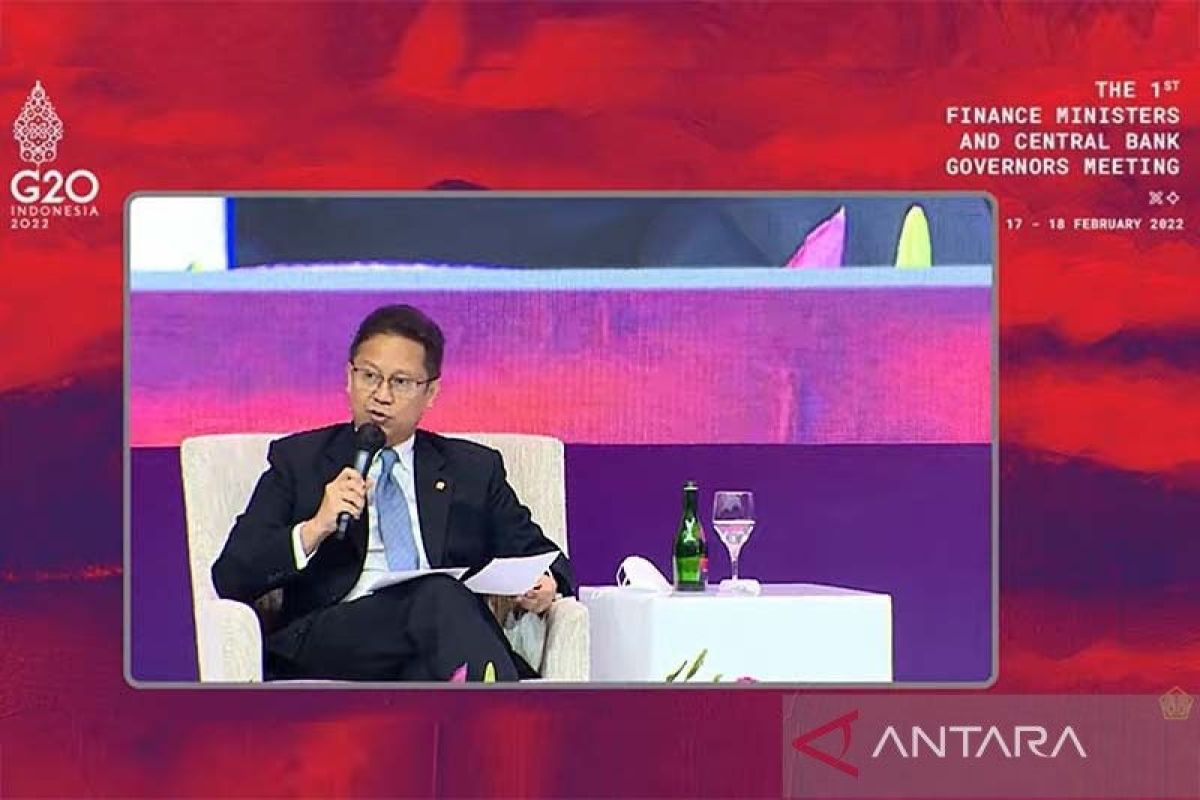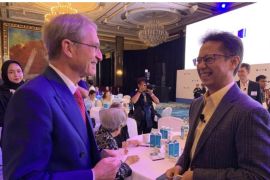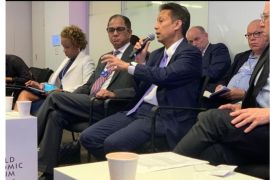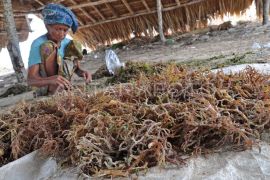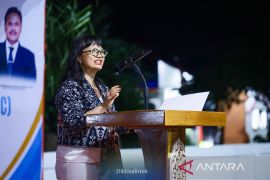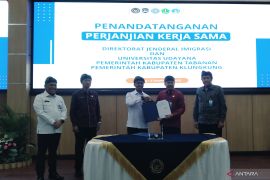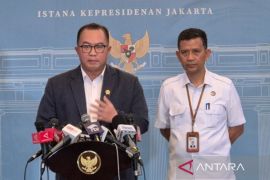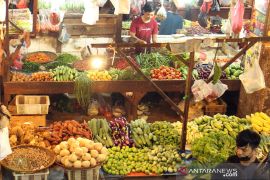One of the efforts has been increasing cooperation between countries to meet the world's needs for health for the sake of global recovery.
Global recovery due to the impact of the pandemic requires stronger global cooperation as the world can only recover from the pandemic if all countries recover from it.
The G20, as a group of 19 countries and the European Union with political and economic power, has the capacity to drive global recovery.
Thus, Indonesia, which is holding the 2022 G20 Presidency, is upholding the spirit of recovery with its theme, “Recover Together, Recover Stronger.”
This theme was chosen by Indonesia considering that the world is still struggling to overcome the COVID-19 pandemic, which requires joint and inclusive effort for finding a solution to the crisis and recovering from it.
Through the G20, Minister of Health, Budi Gunadi Sadikin, has officially introduced health as one route for the global journey to ending the pandemic.
"It has been almost two years since the world's health system has been under great pressure to rise and recover from the COVID-19 pandemic. The pandemic does not only have an impact on the global health system but also has an impact on the lives of people all around the world,” Sadikin noted.
Related news: W20 pushes global commitment to equal health access
One of the most important lessons learned from the COVID-19 pandemic was that the existing global health architecture was slow to respond to the pandemic and not prepared to prevent future public health emergencies, he said.
Secretary of the director-general of public health at the Ministry of Health, Siti Nadia Tarmizi, said that there are three priority sub-issues of global health architecture that will be the focus of G20, namely building a global health resilience system, harmonizing global health protocol standards, and developing study and manufacturing centers for prevention, preparation, and response to future health crises.
It is hoped that the G20 member countries can collaborate further to realize a global health architecture to become more inclusive, cooperative, responsive, and stronger in dealing with various health issues.
Resource mobilization
The mobilization of health resources such as health facilities, pharmaceuticals and medical devices, health workers, laboratories, and health financing has become a big area of focus for Indonesia.
Indonesia, as an archipelagic country, is facing trouble in allocating and distributing health resources evenly.
One example of this has been the uneven distribution of personal protective equipment (PPE) for health workers during the pandemic period.
In eastern Indonesia, the provision of PPEs for health workers in sufficient quantities has been relatively difficult. This has also made health workers vulnerable to contracting COVID-19.
The government still needs to send health workers to all regions so that they are evenly distributed as qualified and equitable human resources are one of the key requirements for building a better health system.
Health workers in the community play an important role in handling health emergencies at every level of intervention since they are skilled in promotive and preventive efforts.
Unfortunately, some regions in Indonesia are still lacking health workers since they are not evenly distributed.
Deputy Minister of Health, Dante Saksono Harbuwono, said that this has been due to a lack of doctors in eastern Indonesian health centers, while in other areas, there has been an oversupply of doctors.
In addition, unattractive incentives and unclear career patterns have also contributed to the unequal distribution of health workers in the country.
Harbuwono said that the ratio of doctors, consisting of general practitioners and specialists, per 1,000 Indonesian citizens has only reached 0.67 percent so far.
Meanwhile, the average need for doctors in Asia is pegged at 1.2 percent and the requirement for doctors in member countries of the Organization for Economic Co-operation and Development (OECD) is 3.2 percent.
Therefore, Indonesia, through its Presidency of the G20, will encourage the development of study centers and manufacturing in the health sector in developing countries.
Through the G20, Indonesia will also seek to strengthen collaboration networks between scientists in the public health sector.
"It becomes very important to establish a regional manufacturing center for research collaboration in the health sector," Tarmizi remarked.
To strengthen global relations, building research centers in developing countries for scientists in the fields of virology, epidemiology, and other fields related to health crises is needed, she added.
She said it is important to develop study centers as well as manufacturing for prevention preparation to respond to future health crises.
"We know that the world now needs to expand its health sector facilities globally so that pandemics and other health crises in the future can be prevented. We also want countries in the world to be better prepared and able to respond more quickly to other potential health crises in the future,” she added.
Currently, mRNA technology in vaccine manufacturing allows for faster development of vaccine discoveries and is also cheaper and safer in responding to pandemic conditions. Unfortunately, the development of mRNA vaccines is limited to developed countries.
Pushing for equality
Through the G20, Indonesia will encourage each country to have equal access to health, specifically technology for developing vaccines, therapeutics, and diagnostics.
It is hoped that the G20 will have a strong political commitment to build a global health system. That way, countries in the world will have no difficulty getting out of hard situations when a health emergency occurs in the future.
This year's G20 marks a time to change the global health architecture. The collective response of the G20 countries this year will determine the handling of the ongoing and future pandemics.
In the spirit of partnership, Indonesia has also invited G20 leaders to continue to collaborate for building a global mechanism for gathering resources for pandemic prevention, preparedness, and response, increasing global genomic surveillance capabilities, including the recovery of a stronger and more sustainable health system.
The COVID-19 pandemic has actually given the understanding that a strong health system must be built to respond to and face any pandemic that may occur in the future.
Not only to solve the pandemic, but also to ensure that after the pandemic ends, the health system is better than the conditions before the pandemic, and has better ability and capacity for dealing with other health crises.
Related news: Equal vaccine, medicine distribution needed to end pandemic: S. Korea
Related news: Merah Putih vaccine: Phase 3 trials to start in July
Translator: Zubi Mahrofi, Resinta S
Editor: Sri Haryati
Copyright © ANTARA 2022
